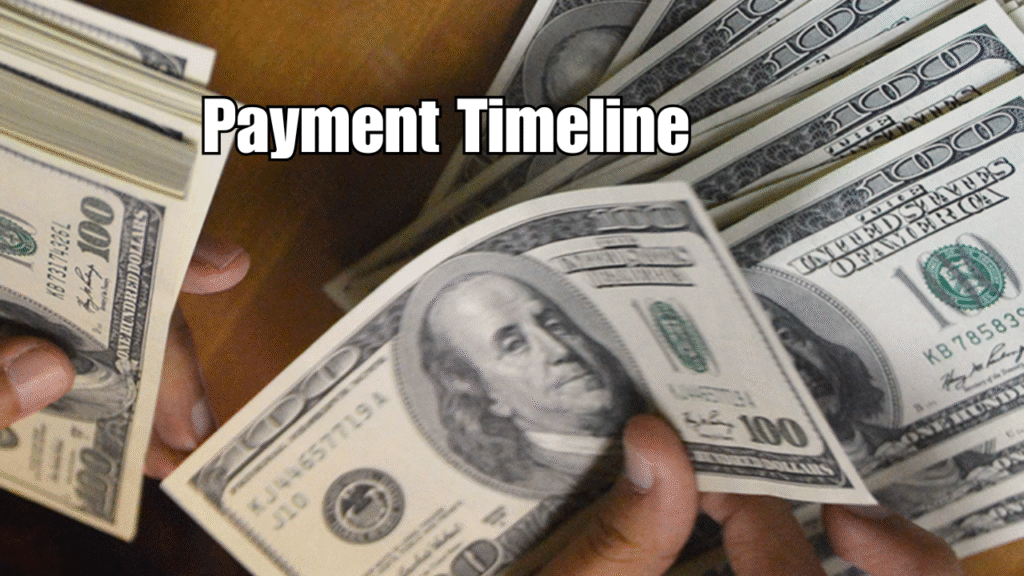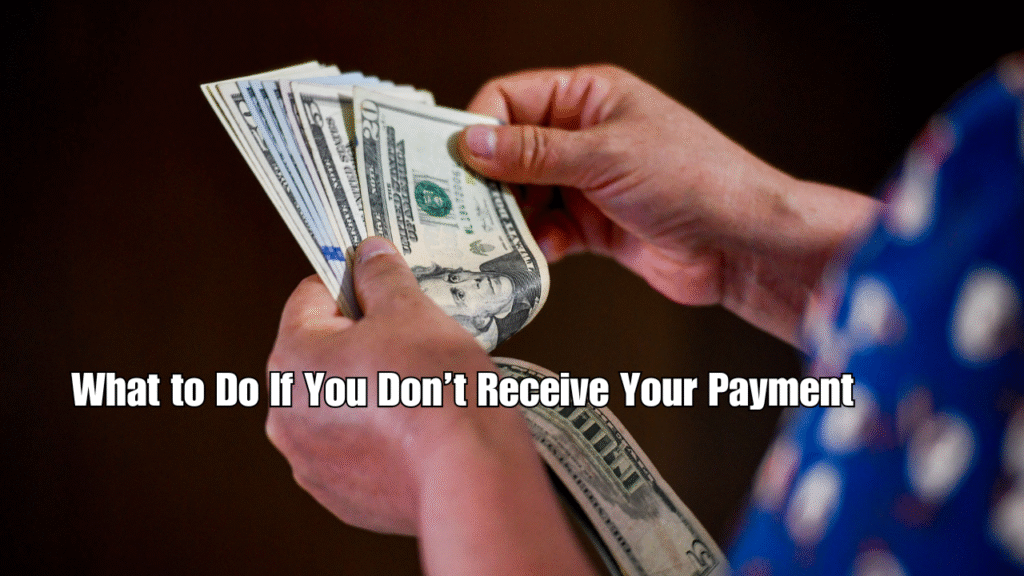Introduction
As the economic challenges of inflation, housing shortages, and rising healthcare costs continue into 2025, the federal government has announced a new round of $1,200 relief checks aimed at helping eligible Americans weather financial uncertainty. These federal relief checks are part of a broad stimulus and recovery package that targets low- to middle-income households, retirees, veterans, and those on Social Security or disability benefits.
This detailed guide will walk you through everything you need to know about the $1,200 relief checks in 2025, including who qualifies, how payments are made, when they are expected, how to check your eligibility, and what to do if you don’t receive your payment. A helpful summary table, real-life scenarios, a conclusion, and five FAQs are included.
Chapter 1: What Are the $1,200 Federal Relief Checks in 2025?
1.1 Purpose of the Relief Checks
The $1,200 federal relief checks are one-time economic stimulus payments approved by Congress to offer temporary financial support for Americans affected by inflation, rising living costs, and stagnant wages.
1.2 Legislative Background
These payments were approved as part of the Federal Relief and Affordability Act of 2025, which allocated billions toward household support, particularly:
- For income-strained individuals
- Seniors living on Social Security
- People with disabilities on SSDI
- Veterans
- Parents with dependents
Chapter 2: Who Qualifies for the $1,200 Payment?
Eligibility for the relief check is means-tested and based on a variety of economic and social criteria.
2.1 Income Thresholds
| Filing Status | Adjusted Gross Income (AGI) Limit |
|---|---|
| Single Filers | Up to $75,000 |
| Head of Household | Up to $112,500 |
| Married Filing Jointly | Up to $150,000 |
Those with income above these levels may receive reduced amounts, while those beyond the phase-out cap won’t qualify.
2.2 Other Qualifying Criteria
- Must be a U.S. citizen or legal resident
- Must have filed a 2023 or 2024 tax return
- Must have a valid Social Security Number
- Not claimed as a dependent on someone else’s return
2.3 Additional Eligible Groups
| Group | Status |
|---|---|
| Seniors (65+) | Automatically included if on SSA/SSDI |
| SSI recipients | Eligible through existing SSA records |
| Veterans (VA Benefits) | Included via Department of Veterans Affairs |
| Unemployed individuals | Eligible if income limits are met |
| Low-income families | Eligible with qualifying dependents |

Chapter 3: Payment Timeline – When Will You Get Paid?
The Internal Revenue Service (IRS) is administering the payments, which will be sent out in batches over a period of weeks.
3.1 Tentative Payment Dates – Direct Deposit
| Last Two Digits of SSN | Expected Payment Date (Direct Deposit) |
|---|---|
| 00–20 | June 10, 2025 |
| 21–40 | June 17, 2025 |
| 41–60 | June 24, 2025 |
| 61–80 | July 1, 2025 |
| 81–99 | July 8, 2025 |
3.2 Paper Checks & Debit Cards
If you haven’t registered for direct deposit, you’ll receive either:
- A paper check mailed to your home, or
- A preloaded EIP (Economic Impact Payment) debit card
These may take 7–14 additional days to arrive depending on mail volume and your location.
Chapter 4: How Will You Receive the $1,200 Relief Check?
| Method | Details |
|---|---|
| Direct Deposit | To the bank account linked to your IRS refund info |
| Paper Check | Mailed to address on file from latest tax return |
| EIP Card | Visa debit card issued via Treasury partners |
Important: Make sure your mailing address and banking information are current on your IRS file or via your SSA account.
Chapter 5: How to Confirm Your Eligibility
5.1 For Tax Filers
- Check your Adjusted Gross Income (AGI) on your 2023 or 2024 return.
- Confirm that your SSN is valid
- Visit the IRS Get My Payment portal (if launched again)
5.2 For Non-Filers (Seniors, SSI/SSDI)
- No action needed; IRS will use SSA/VA/SSI databases to process your payment
- Ensure SSA has your latest direct deposit information
Chapter 6: Why the $1,200 Amount?
6.1 Inflation Offset
The amount was calculated as a modest offset to:
- Food and fuel inflation
- Increased housing costs
- Medical expenses
6.2 Economic Stimulus
The government aims to boost local economies by encouraging spending among low- and middle-income citizens.

Chapter 7: What to Do If You Don’t Receive Your Payment
7.1 Common Reasons for Delay
| Reason | Solution |
|---|---|
| Wrong address | Update via IRS Change of Address Form |
| Closed bank account | Payment will revert to paper check |
| Tax return errors | File corrections via 1040X |
| Being claimed as a dependent | May disqualify you |
7.2 What You Can Do
- Use the IRS Payment Tracking Tool
- Call the IRS stimulus hotline
- File a Recovery Rebate Credit if eligible but missed
Chapter 8: How Should You Use the $1,200?
Here are some strategic ways to use your payment:
| Spending Category | Examples |
|---|---|
| Necessities | Groceries, rent, utilities |
| Debt Repayment | Credit cards, overdue bills |
| Health | Prescription costs, dental, eyecare |
| Transportation | Repairs, fuel, public transport |
| Emergency Savings | Future financial security |
| Childcare | Babysitting, school supplies |
Chapter 9: Real-Life Impact (Fictionalized)
“This payment came just as my rent was due. Without it, I’d be in serious trouble.”
— Clara H., 72, Georgia
“I put half in savings and used the rest to fix my car. Thank you, government.”
— Victor L., 41, Michigan
“I wasn’t sure I’d qualify, but I got the payment in my Direct Express account. Huge relief!”
— Anna R., 59, California
Chapter 10: Summary Table – Quick Facts
| Detail | Information |
|---|---|
| Payment Amount | $1,200 |
| Distribution Dates | June 10 – July 8, 2025 |
| Eligibility | Income-based; U.S. citizen or resident |
| Method of Payment | Direct deposit, paper check, or debit card |
| Taxable? | No |
| Apply Needed? | No – automatic if eligible |
Conclusion
The $1,200 federal relief checks in 2025 are more than a short-term payout—they are a lifeline for millions struggling with financial challenges in a rapidly changing economy. With clear eligibility rules and structured timelines, this relief program is designed to be both inclusive and accessible.
Whether you’re a senior, a low-income parent, or a recently unemployed worker, understanding your rights and tracking your payment is critical. These funds are yours to claim—use them wisely.
FAQs
1. Do I need to apply to receive the $1,200 payment?
No. Payments will be automatically sent to those who qualify based on IRS, SSA, and VA records.
2. Will this check affect my other benefits (e.g., SNAP, Medicaid)?
No. This is a non-taxable payment and will not count as income for means-tested programs.
3. I didn’t file taxes in 2023. Can I still get the payment?
If you’re on SSDI, SSI, or VA benefits, you may still qualify even if you didn’t file taxes.
4. What if I changed my bank or address recently?
You must update your information with IRS.gov or SSA.gov as soon as possible.
5. Can my spouse and I both receive $1,200?
Yes. If both individuals qualify, you will receive $2,400 combined (plus extra for eligible dependents).


